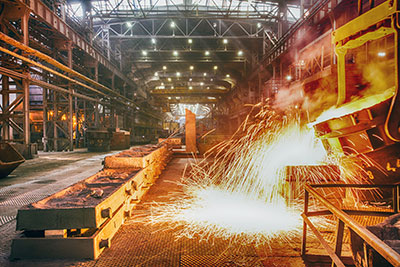A surplus of aluminum will break records

«This year volumes of supplies of aluminum on the market
a record will outstrip demand, which will lead to this level of excess „winged
metal“, what was the last 24 months," writes correspondent of the new York
information Agency „Bloomberg“, citing analysts trading
division of the Japanese keiretsu „Sumitomo Group“. „Blame — the mismatch
the amount of new capacity in the sector (the owners of which, as
it turned out, unjustifiably relied on progressive interest
Asian buyers) growth rate of world consumption of aluminum“ comment
your expectations of professionals. „We believe that the difference between the volumes of supply and level
aluminum consumption in 2013 amounted to 866 thousand tonnes. This figure
14% more than last year’s numbers, with more than half of this amount
will be a surplus in the Chinese market of non-ferrous metals“ — added Japanese
experts.
Representatives of „Sumitomo Group“ noted that
recent years (because of the unreasonable expansion of production) trends in
pricing on aluminium and products on its basis have consistently demonstrated
descending vectors. And current prices of metal, „broken“ line in 2000 USD, is clear confirmation
rashness of growth in the supply of the resource. So for the past year, the price of
aluminum „slipped“ down to 12%, while the global average cost of production in 2164
US dollar per ton has prompted many major producers (including „RUSAL“,
"Rio Tinto» and «Alcoa») to review the volume of production of the product.
Remember: aluminum is the most abundant metal
in the earth’s crust (ton rough product is extracted from 4−8 tonnes of bauxite is often
occurring ore, obtained relatively low-cost way). However, the final
the production cost is very high: only during the processing of alumina
uses about 17,000 kWh of energy, and additionally consumes about
30 kg of aluminum fluoride, more than 50 kg. of cryolite and other costly resources. At
this reason cost-effective melting «winged metal» at low market prices can
only companies with access to cheap energy and raw materials that
developing countries (with relatively low rates in these areas) is
a significant bonus in terms of competition with European and American manufacturers
aluminium.


